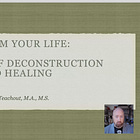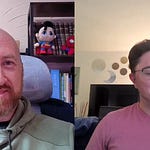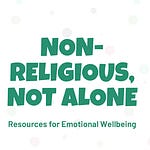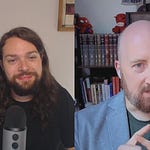In this conversation, SC Nealy and I discuss the impact of beliefs and oppressive systems on the creation of trauma, emphasizing the need for healthier approaches to spirituality and community involvement. We discuss their work in the LGBTQ+ community, with their dedication to the intersection of mental health and social involvement, where the role of the therapist doesn’t just exist in the therapeutic space, but extends into advocacy for civil rights and support for minorities. Rather than promoting a binary choice of religious or secularism, we discuss the need for resources that support individuals who choose to remain within religious and/or spiritual communities while avoiding harmful ideologies.
SC Nealy, LPC (they/she) is a therapist and owner of an all queer and trans-identifying therapy practice in Washington, DC that focuses on bringing therapists with lived experiences to the LGBT+ population. They specialize in religious trauma work and their first non-fiction book, Healing Sacred Wounds, will be published by Bloomsbury in Fall 2026. Visit lgbtcounselingdmv.com for more information, or follow SC Nealy online at @scnealy on Instagram and @booksbysarahrobinson on Facebook.
www.facebook.com/booksbysarahrobinson
Takeaways
Beliefs and oppressive systems can cause trauma.
Spirituality can exist without harming others.
Resources for deconstruction are often limited.
Not everyone is ready to deconstruct their beliefs.
Healthy engagement in religious communities is possible.
Creating spaces for those who choose to stay is important.
Support for mental health within religious contexts is needed.
Deconstructing is not the only path to healing.
Community health can be prioritized in spiritual practices.










